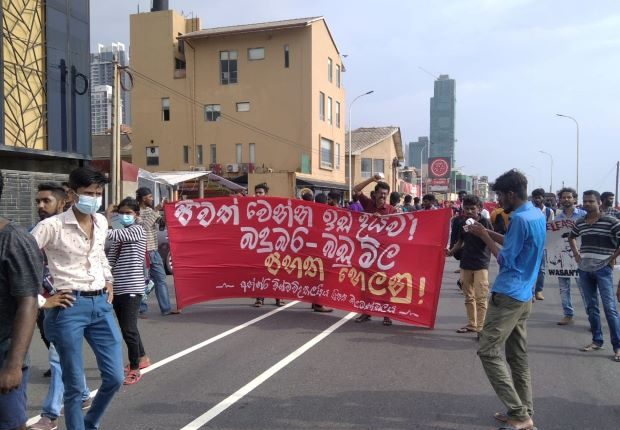COLOMBO – Sri Lanka President Ranil Wickremesinghe got cabinet approval to provide rice free of charge to two million low income families as the public discontent over his government’s policies is on the rise amid higher tax, increased electricity tariff, and lower income.
Facing possible threats of strong protests in the future, Wickremesinghe’s government was tough on anti-government agitation in capital Colombo led by Inter University Students Federation (IUSF) backed by a breakaway Marxists political party.
State sectors including health and education have warned of protests in the future due to higher taxes, trade unions have demanded higher salaries in the face of higher electricity tariff and lower disposable income after inflation hit a record high of 73% in September last year.
Wickremesinghe’s government is also facing an acid test from local government polls in which his own centre-right United National Party (UNP) leaders expect a defeat.
The president, however, needs to manage the economy until it is put into a recovery path with an IMF deal, analysts say.
“The cabinet paper presented by President Ranil Wickremesinghe for the provision of 10 kg of rice per month for two million low income families, including Samurdhi beneficiaries for a period of two months, has been approved,” President’s Media Division (PMD) said in a statement.
“Accordingly, the government will purchase 61,600 metric tonnes of paddy to meet the requirement of 40,000 metric tonnes. This program is proposed to be implemented by District Secretaries and Divisional Secretaries with the assistance of small and medium-scale paddy mills.”
Wickremesinghe has been largely unpopular among rural voters due to his economic policies with tough fiscal policies. His opponents in the past have managed the economy with loose monetary and fiscal policies with higher borrowing, contributing to the current unprecedented economic crisis.
The crisis has forced the island nation to declare sovereign debt default in April last year.
Wickremesinghe has been prime minister six times since 1993, but had never completed a full term in his 46-year political career. He became the president through an unprecedented Parliament election after his predecessor fled the country in July last year in the face of strong anti-government protests.
The new rice donation program is estimated to cost 8.04 billion rupees including 6.2 billion for paddy purchase. The PMD said a budget provision of around 10 billion “will be allocated to be used if the need arises”.
-economoynext.com



Comments are closed, but trackbacks and pingbacks are open.